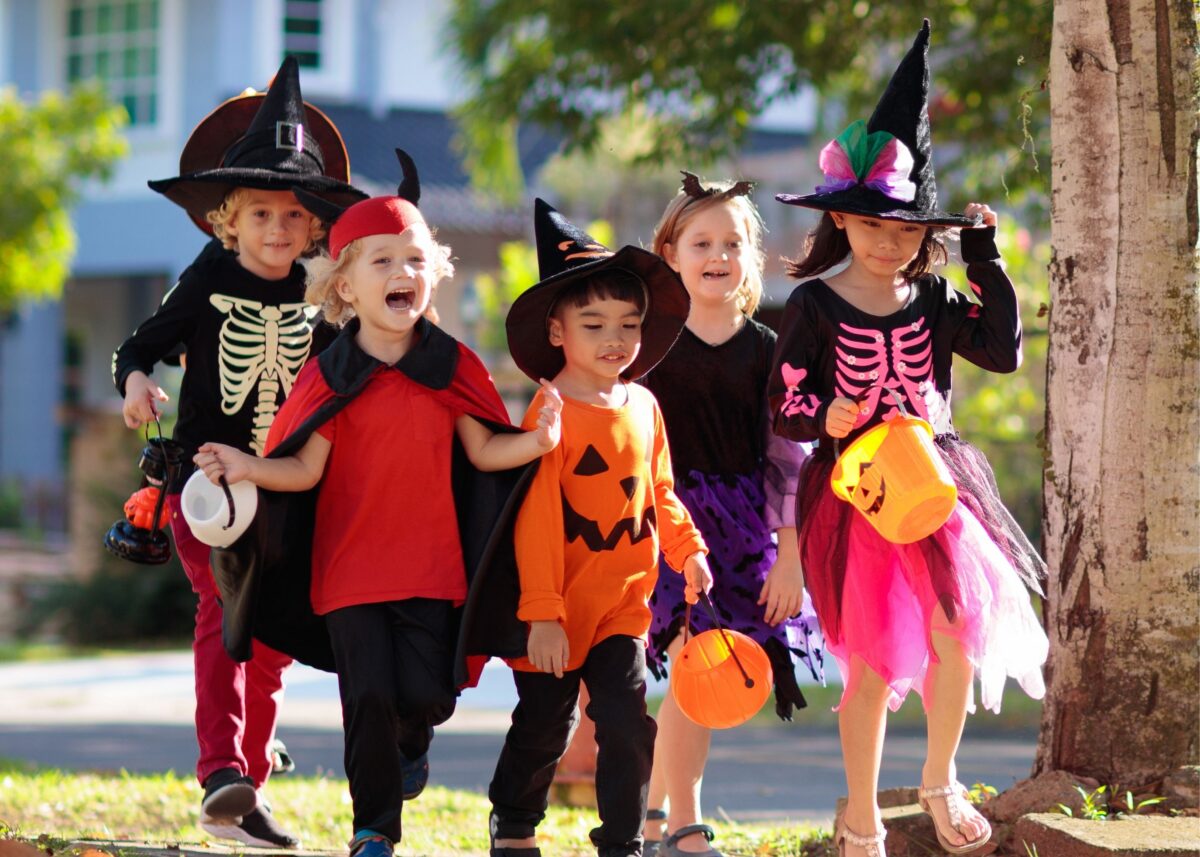Halloween Tips for Children with Autism: Preparing for Trick-or-Treating
The Spark Learning Blog • Posted by Alix Naginski, MSc, RBT on October 24, 2025
Trick-or-Treat Trial Run
To support your child in building the skills they need for a successful Halloween, it may be helpful to practice Trick-or-Treating beforehand. Even small steps, like walking the neighborhood or role-playing at home can make a big difference. Early preparation can help them feel more relaxed, confident, and ready for some spooky fun! Certain aspects of the holiday may be more challenging than others, and that is okay! Explaining Halloween and practicing trying on costumes or Trick or Treating as early as possible is what will lead to higher chances of a successful and stress-free night.
Identifying Your Child’s Trick-or-Treat Needs
Before Halloween night it’s helpful to pinpoint the specific skills and challenges your child might face while Trick-or-Treating. Consider what parts of the experience could be hard for them, such as walking in a crowded neighborhood, saying “Trick or Treat,” selecting only one or two pieces of candy, or managing sensory input (e.g. costumes, lights, and loud noises). Observing your child in similar situations or reflecting on past experiences can reveal areas to focus on during practice. Once you know what they need support with, you can tailor practice sessions and strategies to help them feel more confident and enjoy the night to the fullest.
Time to Teach
Once you’ve identified the skills your child needs, you can teach them in small, manageable steps. Break each skill into simple, clear actions and practice them in a low-pressure environment. Using role-play, visual supports, or Social Stories can make learning fun and concrete, helping your child feel prepared and confident for the real Trick-or-Treating experience.
Spooky Solutions: Troubleshooting Halloween Challenges
For some children, it may be good to practice role-playing situations that may come up, such as what to to do if you get candy you don’t like, what to do when you get your candy and want to eat it immediately, or other scenarios they are likely to encounter. Review each situation ahead of time to avoid challenges occurring in the moment. Some other important social skills to consider are responding to questions or compliments about their costumes. Practicing simple greetings, polite responses, and taking turns can make interactions smoother and more enjoyable. Halloween is a wonderful time to work on and make progress in your child’s social skills while having fun as a family!
Additional Tips & Tricks (or treats!)
- Try a “mock Halloween” night at home with siblings or stuffed animals acting as candy-givers.
- Use role-plays or talking point cards with prompts like “What do you say if someone gives you candy?” or “Let’s practice what to say if someone says, ‘I like your costume!’”
- Practice with different sensory settings: dim lights, spooky sounds, or doorbells ringing, so your child feels prepared.
When in doubt, adapt! If you find that your child is having a harder time with anything that comes with Halloween, adjust your expectations and try again! very child experiences the excitement and change of the holiday differently, and that’s okay. The most important thing is that your child feels comfortable, supported, and able to enjoy the day in their own way.
References
- Chen, T., Yang, W., Wang, Q., Zhang, Y., & Ma, Z. (2020). Effects of social stories intervention for children and adolescents with autism spectrum disorders: A protocol for a systematic review and meta-analysis of randomized controlled trials. Medicine, 99(37), e22018. https://doi.org/10.1097/MD.0000000000022018
- Kyriacou, C., Forrester-Jones, R., & Triantafyllopoulou, P. (2023). Clothes, Sensory Experiences and Autism: Is Wearing the Right Fabric Important?. Journal of autism and developmental disorders, 53(4), 1495–1508. https://doi.org/10.1007/s10803-021-05140-3
Join the Spark Family
- Little Sparks – Our early intervention preschool and kinder program designed to build foundational skills through play-based ABA therapy.
- Speech Therapy – Helping children develop communication skills with personalized, engaging speech and language support.
- Summer Camp – A fun, inclusive program where kids build social skills and confidence through structured activities and play.
- Social Skills & Group – Small-group ABA sessions that teach children how to engage, communicate, and navigate social situations.
- Parent Training – Equipping parents with effective ABA strategies to support each child’s growth at home and beyond.
At Spark, we believe that ABA therapy should be engaging, natural, and, most importantly… fun! Our goal is to empower children, support families, and build confidence in every child we work with.
Ready to learn more? Reach out today!



